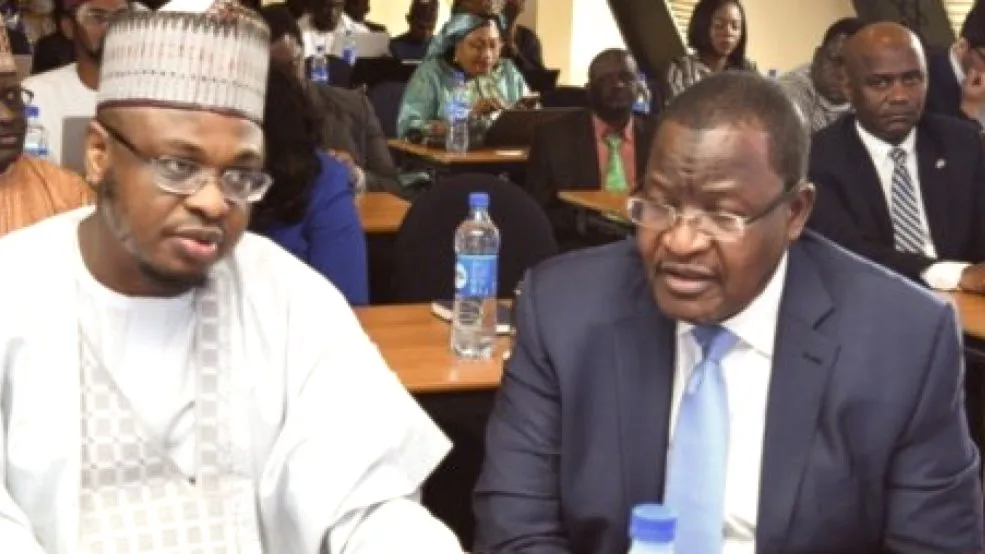Stakeholders across Nigeria’s telecoms sector, including Nigeria’s Minister of Communications and Digital Economy, Professor Isa Pantami and Executive Vice Chairman of the Nigerian Communications (NCC), Professor Umar Danbatta have charted way forward to see the fifth generation Network (5G) successfully deployed in Nigeria.
Converged by Business Metrics Nigeria at the second edition of Policy Implementation Assisted Forum (PAIFo) dedicated to Nigeria’s national policy on 5G, held on Thursday, the industry experts dissected the policy in relation to the theme of the forum: Ascertaining Full Readiness to make 5G Work in Nigeria.
Delivering keynote address at the forum, the Executive Vice Chairman of the Nigerian Communications Commission (NCC), Professor Umar Danbatta identified three stakeholders critical to ascertaining readiness in the telecommunications industry, especially as it relates to the uptake of anything new such as emerging IMT technologies like 5G (IMT 2020).
READ ALSO: NCC uncovers cyber threats to windows platforms, routers
According to him, these stakeholders include Government (Policymakers), National Regulatory Authorities (Regulators), and the Network Operators.image.png
He said: “These stakeholders must ensure the provision of robust government policies, excellent regulatory and operational efficiency as well as optimum network performance.”
The NCC boss who was represented by Joseph Emeshili, Principal Manager, Spectrum Administration Department of the NCC further reiterated that to achieve success in the uptake of any technology within any administration, Governments are required to put in place excellent policies that would foster development and provide adequate room for innovation.image.png
“As policymakers, the government should foster a pro-investment and pro-innovation environment, it should also consider to undertake its own independent economic assessment of the commercial viability of deploying new technologies (such as 5G in this case) networks with a view to providing a clear regulatory path and to enable all relevant stakeholders including the network operators to make informed decisions,” he said.
In his remarks, Minister of Communications and Digital Economy, Professor Isa Pantami said the 5G policy captures all the necessary information guiding the processes for the deployment of the technology in Nigeria.
READ ALSO: Why NCC may roll out additional 5G licenses
The minister, who was represented by Abraham Oshadami, Head of Spectrum Administration Department of the NCC, noted that the 5G policy document aligns with other policies of the government and will support their Implementation.
“Some of these policies include the National Digital Economy Policy and Strategy (NDEPS) for Digital Nigeria, the Nigerian National Broadband Plan (NNBP 2020-2025) and the National policy for the promotion of Indigenous Content in the Nigeria Telecommunications sector,” he said.
The National policy on 5G Networks for Nigeria’s Digital Economy addresses the provision of the required Spectrum and enabling environment for 5G deployment, he added.
Similarly, the Director General of the National Information Technology Development Agency (NITDA), Kashifu Inuwa Abdullahi acquainted the forum with various 5G use cases in Nigeria with a view to spurring investment appetite for the 5G technology.image.png
Represented by Yau Isa Garba, National Director of the National Centre for Artificial Intelligence and Robotics (NCAIR), the NITDA DG delved deep into what the 5G technology is bringing to the table and its industry applications or use cases.
Meanwhile, Omobayo Azeez, the publisher and editor of Business Metrics Nigeria and Lead Executive of the Policy Implementation Assisted Forum (PIAFo) stressed that the focus of the forum is to ensure that critical policies are brought to fruition through active dialogue and unrelenting evaluation.image.png
“We believe there are two critical elements of nation building; politics is one, and policy is the other. The latter is as indispensable as the former. In order for us to walk the talk of every policy, we should at least first understand what that talk is in its entirety. This is the strategic role PIAFo is designed for,” Azeez said.

 Entertainment6 days ago
Entertainment6 days ago
 Health1 week ago
Health1 week ago
 Health4 days ago
Health4 days ago
 Football1 week ago
Football1 week ago
 Football1 week ago
Football1 week ago
 Crime4 days ago
Crime4 days ago
 Education6 days ago
Education6 days ago
 Crime1 week ago
Crime1 week ago

